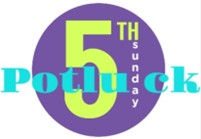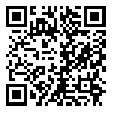May You Live in Interesting Times
Byron Miller, leading
Download the morning program here later in the week.
Of his discourse, Byson writes …
It’s been said “May you live in interesting times” is an old Chinese curse. Most probably not. But such times tend to be those of major change and challenge. They can be demanding, full of surprises and sometimes containing risk and peril, unexpectedly changing the course of
life as we’ve known it. Decades later the mere mention of such events conjures memories of where we were when we lived through them. Today we are living in “interesting times” … and we can see them coming.
Byron Miller’s Bio
Byron has spent half his adult life in the mid-west and half on the west coast. He took his BA specializing in religious studies, the Greek language and Philosophy, his M.Div. with an emphasis in Hebrew bible studies and three and one half years of graduate studies toward a PhD in Ancient Near Eastern Studies at Claremont Graduate School and University Center in Claremont, California. A decade later he was advanced to candidacy for a PhD in History of Religions in America at the University of Chicago.
He has also been active in the Unitarian Universalist Congregations in Long Beach, California, Grand Junction and Colorado Springs, Colorado, Houston, and Waco Texas. He has spoken in Unitarian Universalist congregations in Illinois, Wisconsin, Indiana, Michigan, and Iowa and served in numerous capacities at the Meadville Lombard Theological School in Chicago. and taught at Pasadena College in Pasadena, California, California State University in Northridge, California and Butte County Community College in Chico, California. He has been a guest lecturer for classes in California, Colorado, Illinois, and Texas. He also served in leadership capacities in the Central Mid-west District and the Mountain-Desert District of the UUA in Colorado and New Mexico.
He is currently active in research and writing projects and developing a private library and research center as part of that endeavor.




 Mark Davies is the Wimberly Professor of Social and Ecological Ethics and Director of the World House Institute for Social and Ecological Responsibility at Oklahoma City University. He is the Executive Director of the Leadership, Education, and Development (LEaD) Hub North America of the General Board of Higher Education and Ministry of the United Methodist Church and an Oklahoma Humanities State Scholar. Mark has published in the areas of Boston personalism, process philosophy and ethics, and ecological ethics. Dr. Davies serves on the United Methodist University Senate, which is “an elected body of professionals in higher education created by the General Conference to determine which schools, colleges, universities, and theological schools meet the criteria for listing as institutions affiliated with The United Methodist Church.” He and his wife Kristin live in Edmond, OK in the United States, and they have two daughters. The views expressed by the author in this blog do not necessarily represent the views of Oklahoma City University or the United Methodist Church.
Mark Davies is the Wimberly Professor of Social and Ecological Ethics and Director of the World House Institute for Social and Ecological Responsibility at Oklahoma City University. He is the Executive Director of the Leadership, Education, and Development (LEaD) Hub North America of the General Board of Higher Education and Ministry of the United Methodist Church and an Oklahoma Humanities State Scholar. Mark has published in the areas of Boston personalism, process philosophy and ethics, and ecological ethics. Dr. Davies serves on the United Methodist University Senate, which is “an elected body of professionals in higher education created by the General Conference to determine which schools, colleges, universities, and theological schools meet the criteria for listing as institutions affiliated with The United Methodist Church.” He and his wife Kristin live in Edmond, OK in the United States, and they have two daughters. The views expressed by the author in this blog do not necessarily represent the views of Oklahoma City University or the United Methodist Church.
